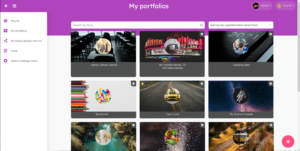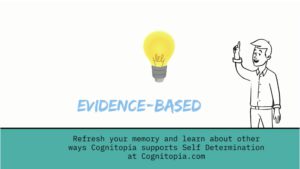Cognitopia 2.0
Tom Keating and I both grew up with younger brothers on the autism spectrum. We know that sometimes facing the seemingly “little things” is often more difficult than what other people will ever be able to understand. We also know how simple solutions to everyday problems can have a large impact on a person’s quality of life.
We founded Cognitopia with the idea of creating simple tools to help take the stress out of the lives of anyone with autism. Tom has been researching how technology can improve the lives of people with autism and their families for more than twenty years. He’s worked for non-profits and raised millions of dollars in federal grants to research how assistive technology can make life better for those who experience autism.
Cognitopia recently received two federally funded grants and were able to expand our team of employees. Bryan is our incredibly talented and compassionate lead developer, Blake is our sharp and thoughtful designer, and Ben is our focused and dependable junior developer.
Creating the best-possible customer experience is our ultimate goal and we’ve been working closely with a group of testers as we develop and improve upon our suite of web apps. We’ve also consulted with numerous families, support agencies, and school districts, and are working hard to incorporate real-world feedback into the tools we develop.
We are nearly ready to share our suite of web apps with you. Please join our mailing list, like us on Facebook, or sign up for a free trial of our newest app, Goal Guide, and help us build a better world for the people we care about.
Cheers,
Matt



